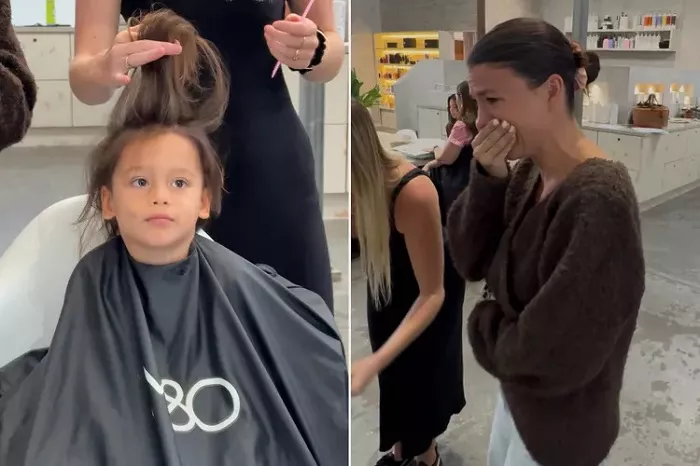An Australian mother captured a deeply emotional moment in a viral TikTok when her 3-year-old son, Oscar, decided to cut off his long hair—a decision that marked more than just a change in appearance.
For two years, Oscar had worn long, flowing hair, a common style among boys and men in their coastal surf town. His mother, Katie Bunton, cherished the look and associated it closely with his early childhood. But during what was expected to be a routine trim, Oscar surprised his family by asking for it all to be cut off.
“We actually thought it would be a routine trim,” Bunton told PEOPLE. “But he made a big point to tell us he ‘wanted it all gone’ this time.”
Bunton admitted she wasn’t ready. She and her husband had come to see Oscar’s hair as part of his identity and a symbol of his “babyhood.” Yet, she recognized it was a personal decision and allowed him to go through with it. “Watching your babies become kids is the best and hardest part of being a parent,” she said.
Bunton believes Oscar’s decision may have been influenced by strangers who often mistook him for a girl. “Most often it would be other adults saying things like, ‘how old is your daughter’ or ‘she’s so cute,’” she explained. It hadn’t bothered her, but after the haircut, Oscar looked in the mirror and said, “I’m not a girl anymore.”
His new haircut brought a visible change in his mood. “He was smiling so big the entire day!” Bunton said. The transformation was not only physical but emotional, signaling a shift toward greater independence.
The viral TikTok showing the haircut received unexpected backlash, with some viewers criticizing Bunton’s tearful reaction. “I thought every mom cries at their child’s first big haircut,” she said. “But based on the intense, hateful backlash this video got, I guess I was wrong.”
Despite the criticism, Bunton stands by the experience as a meaningful parenting moment. It reminded her of the emotional milestones that come with raising children, especially her twin sons, Oscar and Brooks. “It was emotional knowing they were getting to an age where they wanted and could handle bigger responsibilities,” she said.


